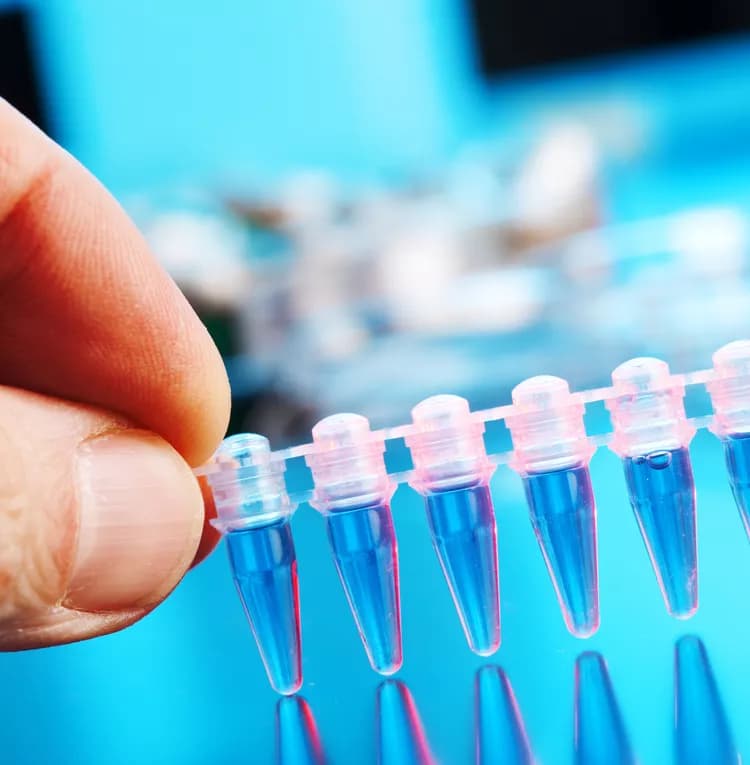What are the other Names for this Test? (Equivalent Terms)
- Alloantibody Identification Blood Test
- RBC Ab ID Blood Test
- RBC Antibody Identification Blood Test
What is Red Blood Cell Antibody Identification Test? (Background Information)
- Red blood cells (RBCs) are the principal ‘gas’ transport vehicles of the body. They display molecules on their surface (antigens) that the body recognizes, through its immune protein defenders (antibodies)
- There are many antigens displayed by RBCs. The most abundant ones are antigens A, B, and D (also known as Rh)
- An individual’s blood type is determined by the kind of antigens displayed by their RBCs. RBCs of an individual with type A blood, display the A antigen; of type B blood, the B antigen; of type AB blood, both A and B antigens; and of type O blood, neither A nor B antigens
- The body produces antibodies against opposing blood types. This is because a foreign antigen is considered invasive. Thus, an individual with type A blood, produces anti-B antibodies; with type B blood, anti-A antibodies, and so on
- Unlike with A and B, the body does not produce anti-D antibodies as a preventative measure. Instead, anti-D antibodies are only produced, after contact with the D antigen has occurred
- When an antibody, specific to an antigen, comes in contact with that antigen, the result is clumping (agglutination). In the case of RBCs, this result in their destruction; a condition termed as hemolysis
- Prior to such a situation, where the bloods between two individuals are mixed, their compatibility must be confirmed. This is initially performed using a direct antiglobulin test (DAT), or a RBC antibody screen
- If these primary tests result in agglutination, the RBC Antibody Identification Blood Test may be performed. This follow-up test identifies the specific antibodies present in the blood to determine which ones are responsible for agglutination.
What are the Clinical Indications for performing the Red Blood Cell Antibody Identification Test?
Following are the clinical indications for performing a Red Blood Cell Antibody Identification Test:
- Positive result from a direct antibody test (DAT)
- Positive result from a RBC antibody screen
- Rejection of donor’s blood by the recipient, during a blood transfusion
- To evaluate blood, prior to a transfusion
- To evaluate mother’s blood, during pregnancy
Clinical indications for performing the test in an adult:
- Fever
- Chills
- Nausea
- Low blood pressure (hypotension)
- Skin and eye discoloration, especially yellowing
Clinical indications for performing the test in a newborn:
- Swollen tissues
- Failure to thrive
- Discoloration of the skin, especially yellowing
How is the Specimen Collected for Red Blood Cell Antibody Identification Test?
Sample required: Blood
Process: Insertion of a needle into an arm vein.
Preparation required: None
What is the Significance of the Red Blood Cell Antibody Identification Test Result?
The presence of certain antibodies may indicate:
- Donor blood is incompatible with recipient blood
- Pregnant mother must take drugs, such as RhoGam
- Hemolytic disease of the newborn (HDN)
- Autoimmune hemolytic anemia
- Viral infection
- Lymphoma
- B-cell chronic lymphocytic leukemia (B-CLL)
The laboratory test results are NOT to be interpreted as results of a "stand-alone" test. The test results have to be interpreted after correlating with suitable clinical findings and additional supplemental tests/information. Your healthcare providers will explain the meaning of your tests results, based on the overall clinical scenario.
Additional and Relevant Useful Information:
- Certain factors may interfere with the test and these include medications, such as penicillin, insulin, acetaminophen, quinidine, aspirin, and RhoGam (if not ordered)
Certain medications that you may be currently taking may influence the outcome of the test. Hence, it is important to inform your healthcare provider, the complete list of medications (including any herbal supplements) you are currently taking. This will help the healthcare provider interpret your test results more accurately and avoid unnecessary chances of a misdiagnosis.
Related Articles
Test Your Knowledge
Asked by users
Related Centers
Related Specialties
Related Physicians
Related Procedures
Related Resources
Join DoveHubs
and connect with fellow professionals


0 Comments
Please log in to post a comment.